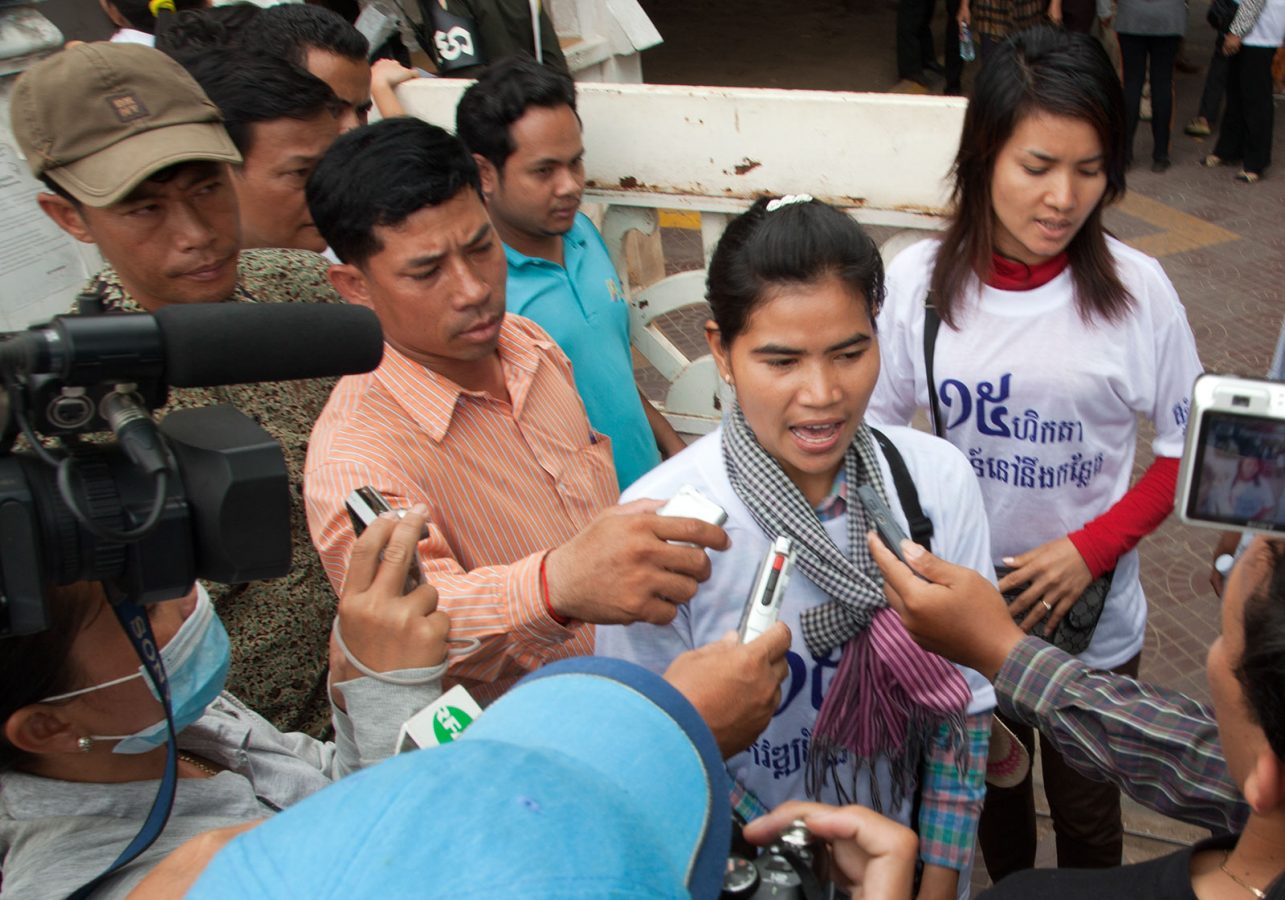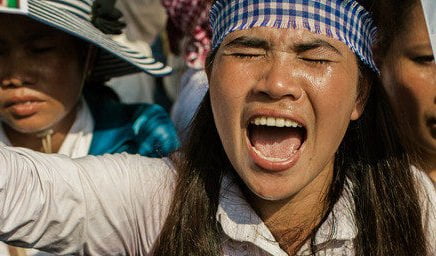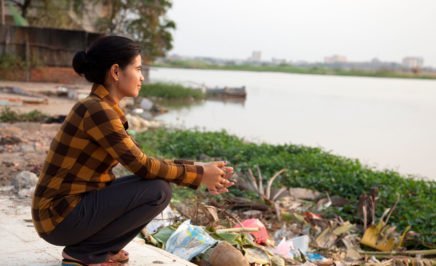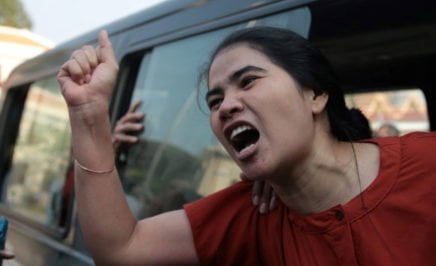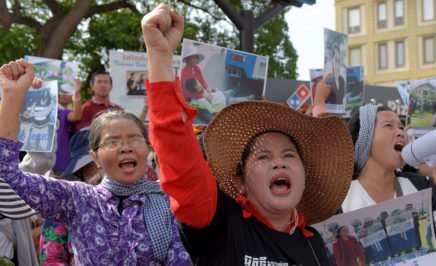After more than 700 days in detention Tep Vanny, a Cambodian land rights activist, is released from prison.
What happened?
Tep Vanny was released from prison following a royal pardon. Vanny spent over 700 days in prison, after being arrested on 16 August 2016.
For almost 10 years, she has defended her community in the centre of Phnom Penh where the Cambodian Government has forcibly evicted thousands of families from their homes.
For years, Tep Vanny has been targeted by the authorities for her activism. She has been harassed, beaten, arrested and imprisoned.
In doing this, the government has attempted to silence her voice and send a chilling message to the Cambodian people of what can happen if you stand up for your rights, and the rights of others.
She was arrested for taking part in a ceremony as part of “Black Monday”, a campaign launched in 2016 to call for the release of five imprisoned human rights defenders.
On 23 February 2017, Phnom Penh’s First Instance Court convicted Tep Vanny of “intentional violence with aggravating circumstances”, and sentenced her to two and a half years imprisonment.
The conviction was based on her peaceful participation in a March 2013 protest in front of Prime Minister Hun Sen’s house, calling for the release of one of the arbitrarily detained Boeung Kak Lake Community Members.
Cambodia’s crackdown on civil society
Civil space in Cambodia has been shrinking radically over the past few years. Arbitrary restrictions of the rights of freedom of expression, assembly and association are the new norm.
The country’s ruling party launched a ruthless crackdown on all forms of dissent in the lead up to general elections in July 2018. Opposition figures, rights activists and journalists have all become targets of the authorities.
At least 35 other leading opposition figures have been arrested since 2015. The main opposition party, the Cambodia National Rescue Party, has been dissolved, and many of its key members have been banned from political activity for five years.
NGOs and individual human rights activists like Tep Vanny have continued to bravely fight against injustice, increasingly doing so at their own risk.
In September 2018, the English-language Cambodia Daily – one of the country’s few independent print media outlets – was abruptly forced to close over an allegedly unpaid tax bill. Around the same time, the government forced broadcasts from Voice of America and Radio Free Asia off the air, while also shutting down the independent radio station Voice of Democracy. Broadcast media in Cambodia is now almost completely under government control.
How did Amnesty respond?
Amnesty International considered Tep Vanny a prisoner of conscience held solely for her peaceful human rights work, and began campaigning for her release following her imprisonment.
She was a key figure in the global Brave campaign, which calls on governments to support and stand up for human rights defenders like Tep Vanny.
In April 2018, Amnesty International France handed over 200,00 actions to the Cambodian embassy in Paris calling for Tep Vanny’s release. This included 24,192 actions taken by Australians.
What next?
After more than two years of being unjustly detained for her peaceful activism, the news that Tep Vanny is once again reunited with her family is a cause for great celebration.
However, her release was long overdue. Tep Vanny has endured a catalogue of injustice – from baseless, politically-motivated charges to unfair trials – and should never have been imprisoned in the first place.
As well as allowing Tep Vanny to resume her activism without fear of further reprisals, Cambodia’s authorities must quash all convictions against her and halt any investigations into any other pending charges. Additionally, the many other human rights defenders and prisoners of conscience still languishing behind bars in the country must also be immediately and unconditionally released.
